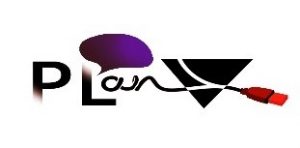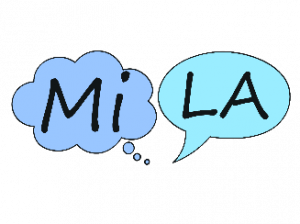A Speech and Language Therapy Platform with Virtual Agent (PLan-V)
In this project we are developing an integrated, technologically assisted Speech and Language intervention platform for people with chronic neurogenic communication impairments. The platform will allow individuals with such impairments to practice in their own environment, without the physical assistance of a clinician (Speech & Language Therapist, SLT) but with the guidance of a virtual agent (Avatar). At the same time, it offers SLTs the ability to design and assign remotely individualized intervention programs to their patients, as well as monitor their performance and assess their progress.
The protocols that are being developed target both speech (breathing, phonation, and intonation) and language (phonology, lexical semantics, sentence structure) via a large number of tasks and items. The virtual assistant provides oral instructions and feedback in combination with visual cues, such as color-coded written stimuli, pictures, animations, acoustic representations of speech, as required by each intervention task. A friendly interface facilitates accurate performance, indicating incorrect and successful trials.
The project is funded through the Operational Program Competitiveness, Entrepreneurship and Innovation, under the call Research-Create-Innovate.
Duration: 2020-2023
Principal Investigator: Arhonto Terzi
Coordinator: Ioannis Papakyritsis

German-Greek toolkit for Theory of Mind and Language in Autism (MiLA)
The primary aim of this project is to develop a tool that will be able to assess 1st and 2nd order Theory of Mind (ToM) abilities, in two versions: with simultaneous verbal description of the associated videos/pictures (verbal) and without description (non-verbal). The ultimate purpose is to use the tool in order to assess the ToM abilities of individuals with language abilities below the norms, with special focus on autistic populations.
Additional aims are: to initiate and reinforce cross-disciplinary academic relations between the participating universities in Germany and Greece, namely, the Universities of Konstanz, Cologne, Patras, and Thessaly, to provide training to early stage researchers and young academics on the development and use of language and ToM instruments, and to organize knowledge transfer workshops for education and health professionals in each country.
The project is funded by IKYDA, which stands for IKY (State Scholarships Foundation, in Greece) and DAAD (Federal Ministry of Education and Research, in Germany).
Duration: 2020-2022.
Principal Investigators in Germany and Greece:
Theodoros Marinis (Universität Konstanz)
Arhonto Terzi (University of Patras)

https://www.ling.uni-konstanz.de/mila/


